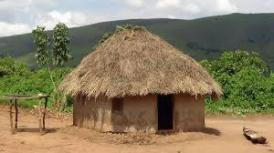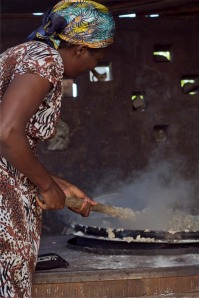I always get amazed on what draws people to come to Kenya to work or volunteer. Everyone has a story and I try and get them to tell me.
Some come to escape from their former life. Others to get themselves up the ladder of success in business. Some found that this was the only way to get to see this part of the world.
And then there’s me.
When I was in Standard 4, at about 10 years of age, we did a study – The Manyatta of Kenya.
I’m 46 years old. In ‘my day’ very few people travelled internationally. I remember one friend whose entire family went to Disneyland and they brought back a huge (and I mean huge) Winnie the Pooh. Another friend went to The Netherlands. But that was about it. I remember the same year that a plane full of tourists from New Zealand flew to Antarctica and them all perishing on a mountain there.
And then there was me.
We didn’t own a car until we inherited money from a grandparent passing. I remember travelling out of town once or twice.
Over my teens I had grown up reading adventures of people who had travelled through China, Africa, South America and India. But I’d never been there.
The first time I travelled internationally was when Pete went to college in Australia for 3 months, so we packed up and headed for the Sunshine Coast. Our girls were 8 weeks and a year old, I was 22.
A couple of years later we went to India for a few weeks, left the babies behind and had a blast. We would’ve been happy to move there but things didn’t pan out that way.
As the years went by we hosted plenty of international development workers or missionaries, many who worked in Africa. We threw (not literally) our girls out of their beds for our visitors. The girls thought it was cool, they didn’t know any different. I home schooled them for 6 years and integrated a lot of history, country information and cultural teaching.
Then life took a turn.
We moved to Sydney, Australia where we’d never been before. Set up a new life, and it was great. That was 2002.
In 2007 I had the opportunity to travel to Kenya to graduate my students. I emailed a Kiwi friend of ours who we hadn’t seen for a few years and met up with them. It was great seeing their work with streetboys. I returned home for only a few weeks and then had to go to Ghana for a seminar. Ghana was so different to Kenya. East and West are like chalk and cheese.
In 2009 Pete and I decided that we wanted our girls to have a bigger world view. We wanted to show them that not all of the world was white, English speaking and middle class. So, we took them to Africa, specifically Kenya, Uganda, Rwanda and Tanzania. Our youngest daughter DID NOT want to go. She had just finished her last year at high school and decided she ‘wanted to work’ we told her she had the rest of her life to work, and she was coming.
For a year we saved, sacrificed and made budget. A couple of other young people came with us some of the way. It was a cheap trip – buses, backpackers and motorbikes. We had a blast (most of the time). After 8 weeks we returned home tired but changed.
In 2010 Pete and I went to Hawaii to drop Hannah off at school. It was there that we decided to move out Sydney, we were bored. The answer was either Hawaii or Kenya. I LOVE Hawaii, love, love, love it. But we thought ‘what the heck, what have we got to lose by going to Kenya?’
In 2011, Pete, Liz and I returned to Africa with the specific thought of ‘Could we really live here and what could we do?’ This time for another 2 months but it was to Kenya, Uganda and Tanzania (Climb Mount Kilimanjaro). Pete broke his leg on the mountain, so he stayed back in Nairobi and Liz and I went throughout Uganda checking in on our projects. The change in plans gave us a longer time to see if Kenya would be our new home or not. We’d travelled through lots of countries but there was something pulling us back to Kenya.
Nairobi was the most modern city we visited. We had people we knew there. It could give us easy access to other countries. We liked it. We liked it enough that we moved in 2012.
While there is lots of wildlife which is absolutely the coolest, it’s the amazing people that you get to meet. Those who struggle from day to day but keep a positive attitude. Those who are starting out in business and doing well. Expats who come here for some sort of experience.
Nairobi is made up mainly of Kenyans but there are representatives from pretty much every nationality on earth.
Kenya is never dull and boring. There’s always something to do and people to meet. There is a lot of history here (which I love). It’s diverse and interesting. You’re always learning something new. We’re close to our water projects and the communities we work with.
We could’ve gone anywhere in the world and it we would’ve been fine but we chose Kenya.
Actually, I think Kenya chose us.





























